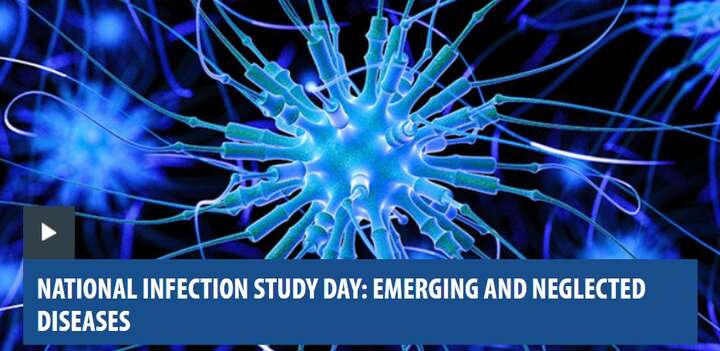
By Professor Russell Stothard
A dear departed colleague of mine from the London School of Hygiene & Tropical Medicine (LSHTM), Dr David Ellis, often used to tell me his favourite medical joke -
“What's the difference between a physician, a surgeon and a pathologist? The physician knows everything and does nothing. The surgeon knows nothing and does everything. The pathologist knows everything, but always a week too late”.
David died in 2012 aged 90 but throughout his varied career, he was a proud member of the Royal College of Pathologists.
In life, David had many colourful stories and as a young man he worked with the eminent pathologist Howard Florey during the first trials of Penicillin in Oxford during WW2. He danced ballet with Marlene Dietrich in the opening scene of Hitchock’s Stage Fright in 1950 (but that’s another story), and whilst in charge of LSHTM’S Electron Microscope Unit from 1975 made many important discoveries. David was one of the very first to characterise Ebola virus, a pathogen that many of us in COUNTDOWN now know well and was regularly seconded to Porton Down to provide biosecurity advice to the UK Forces.
With this in mind, I was very honoured to be invited to present at the Royal College of Pathologists on their emerging and neglected tropical infection day. The meeting echoed many of David’s interests, from use of antibiotics to emerging viral diseases, and I was delighted to present our recent COUNTDOWN research.
The first talk by Dr Colin Brown (Public Health England), introduced key topics in the practice of medical bacteriology in the UK: epidemiology of Mycobacterium chimaera associated with open heart surgery, the UK-rise of scarlet fevers with group A Streptococci, outbreak vaccination strategies for pertussis control and emerging antimicrobial resistance in general. Taking a more international perspective, emerging viral diseases were discussed by Professor Daniel Bausch (LSHTM), who now heads the UK Public Health Rapid Support Team, as he recounted his experiences in West Africa, providing support during the recent Ebola Virus Disease outbreak. As many of us know, this was supported by UK-AID and many staff from both UK Schools of Tropical Medicine. The theme was also expanded on by Lieutenant-Colonel Emma Hutley (Royal Army Medical Corps), who helped oversee setting up diagnostic laboratories in Sierra Leone. These provided essential services for patient blood screening, transfusion needs and pathogen detection illustrating the cornerstone role of effective pathology services in real time needs. The latter was especially important to confirm or exclude viral infection.
A later talk by Professor Mathew Fisher (Imperial College London), shed new light on the current problems of antifungal management and treatment of fungal disease either found in the blast wounds of servicemen from soil-contaminated shrapnel or in the lungs and bodies of those with opportunistic infections in London. Mat highlighted his airborne sampling apparatus for fungal spores sited on St Mary’s rooftop, a few floors above Sir Alexander Fleming’s laboratory where he first discovered mould juice to have antibacterial properties, although it was Florey et al. who pioneered its clinical implementation.
A key but often an under-appreciated part of pathology is study of medical parasites, especially those in the tropics. In contrast to the acute nature of either bacterial or viral infections; medical parasites on the other hand are often chronic, difficult to control and inflict disease in tens of millions. I presented on recent work within COUNTDOWN and highlighted the importance of female genital schistosomiasis (FGS). A quick show of hands of revealed only 3 of the audience had heard of the condition, but one reported she had seen it several times in the UK upon referral from perplexed surgeons who had encountered suspicious cancer-like masses in the Fallopian tubes and uteri of their patients undergoing surgery, which later turned out to be schistosomiasis granulomata (neoplastic masses around trapped schistosome eggs).
The discussions, reminded me of David’s joke, so I made extra effort to feature our work in of FGS in Ghana, Cameroon and the importance of the international workshop we organised in South Africa three years ago. All of which is starting to raise more awareness, hopefully outside of pathology to FGS; and allow NTD programmes to change tactics through more enlightened discussions and better align themselves with key sustainable development goals, leave no one behind.
Making change happen does not come quickly and there is no short route to rapid policy change but a quick review of our recent activities in Ghana reveal there is much to be hopeful for. Furthermore, this year at our annual partners meeting in Liverpool I hope to see our carefully nurtured seedlings of COUNTDOWN research start to flower, to bear fruit and to nurture lasting policy change with more equitable NTD interventions.
